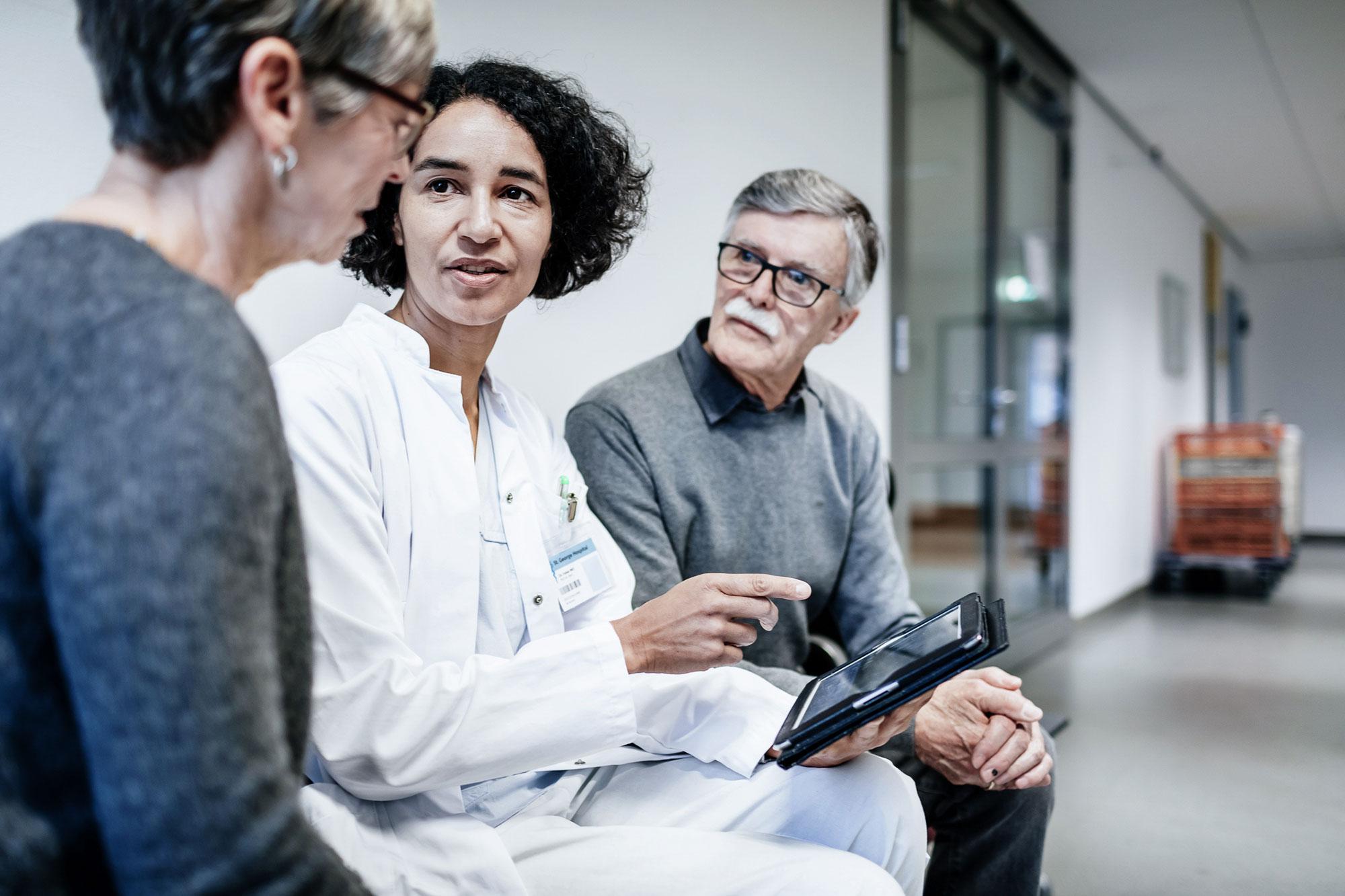Funding of medical topics that are not being addressed by industry

The SNSF is providing a total of 14.5 million francs in funding for six clinical studies on under-researched topics. Patients have a say in the choice of projects.
Can changes to fluid intake in premature babies reduce the risk of them developing chronic lung diseases? Industry does not focus on medical issues like these, even though they are of great importance to society. That’s why the SNSF has provided support for promising clinical studies on such under-researched topics since 2016.
In response to the 2023 call for proposals for the Investigator Initiated Clinical Trials (IICT) programme, it received 40 funding applications. It is now supporting six of them with a total of 14.5 million francs (see box). The researchers will work on their clinical studies for four to five years. For each project, they are recruiting between 220 and 9074 patients.
Assessment body that includes patients
For the fourth time, four patients participated in the selection of the best projects. What started as a pilot trial in 2021 has now become standard practice. Once again, the discussions with these four people proved to be very helpful: the perspective of the people affected as well as their specific needs are taken into account.
Since 2016, the SNSF has funded a total of 57 clinical studies. The next call for proposals is already underway. Researchers announced their intention to participate in May 2024, and they will submit their applications by 1 November 2024.
The six approved projects
The bacterium Staphylococcus aureus is one of the main causes of infection-related deaths. Richard Kühl from University Hospital Basel is investigating whether the combination of standard antibiotics with the antibiotic linezolid is beneficial for patients with Staphylococcus aureus infections in the bloodstream.
Approximately 20 percent of premature babies develop chronic lung diseases in their first weeks of life, which can adversely affect their further development. Sven Schulzke from the University Children's Hospital Basel is researching whether changes to fluid intake in premature babies can reduce the occurrence of such chronic lung diseases.
Kevin Selby from Unisanté Lausanne is investigating new, risk-based screening methods for the detection of colorectal cancer. Relative to current standard methods, they could be used in a more targeted manner, reducing risk and stress for the population at risk.
It is currently unclear whether the administration of antiviral drugs is beneficial for patients who have to be hospitalised for severe flu infections. Pauline Vetter from the Geneva University Hospital is seeking to optimise the therapeutic approach and to create an international consensus for the late administration of antiviral drugs. This could also prove valuable in future pandemics.
The risk of thrombosis or pulmonary embolism is elevated in women shortly after childbirth. There has not yet been sufficient research into how efficient and safe the administration of preventative treatments is in the postpartum period. Marc Blondon from Geneva University Hospital wants to find out whether the administration of low-dose heparin over short periods can prevent the development of thrombosis and embolisms after delivery.
An increasing number of liver transplants are being carried out in patients with liver cancer. In 15 percent of cases, however, the tumour returns after transplantation due to the quality of the donor liver. Philipp Dutkowski from University Hospital Zurich is investigating whether the likelihood of such a relapse can be reduced by mechanical perfusion (a kind of flushing) of the donor liver before transplantation.